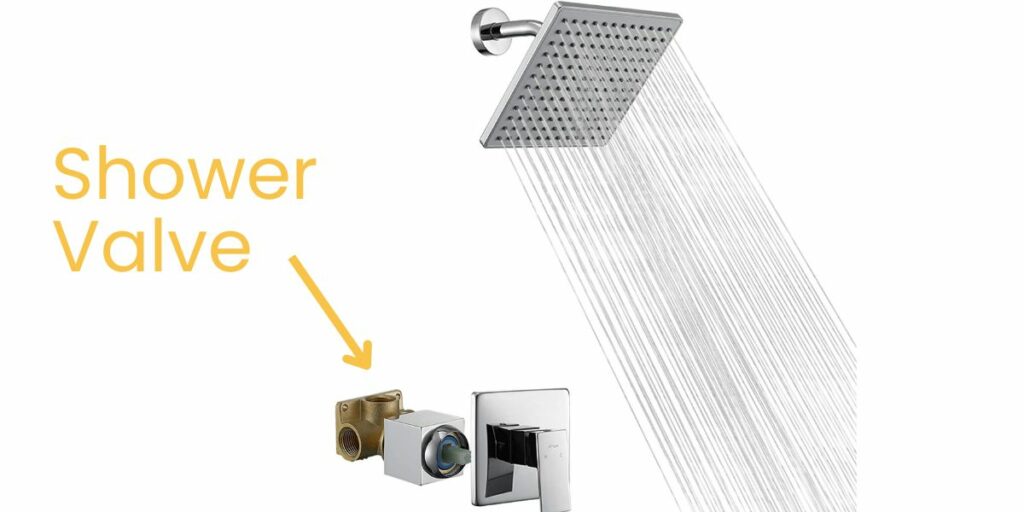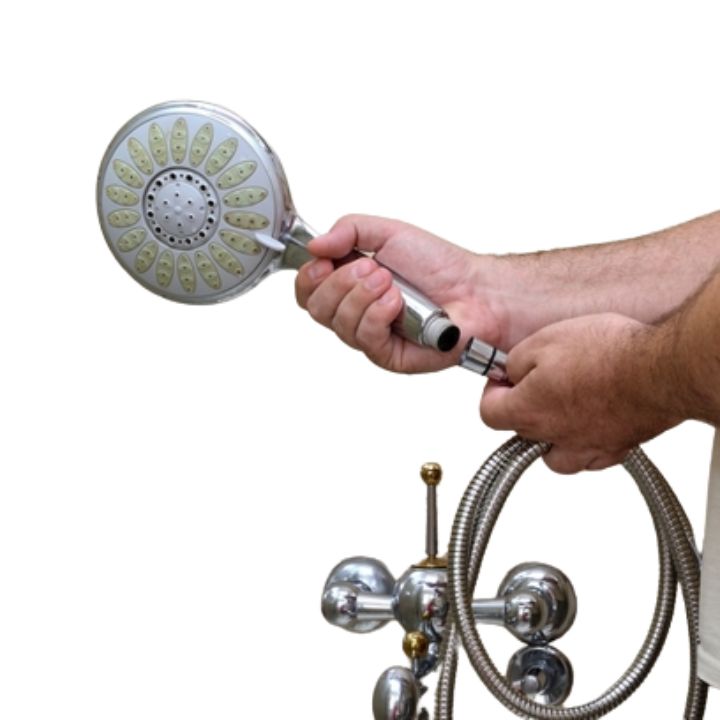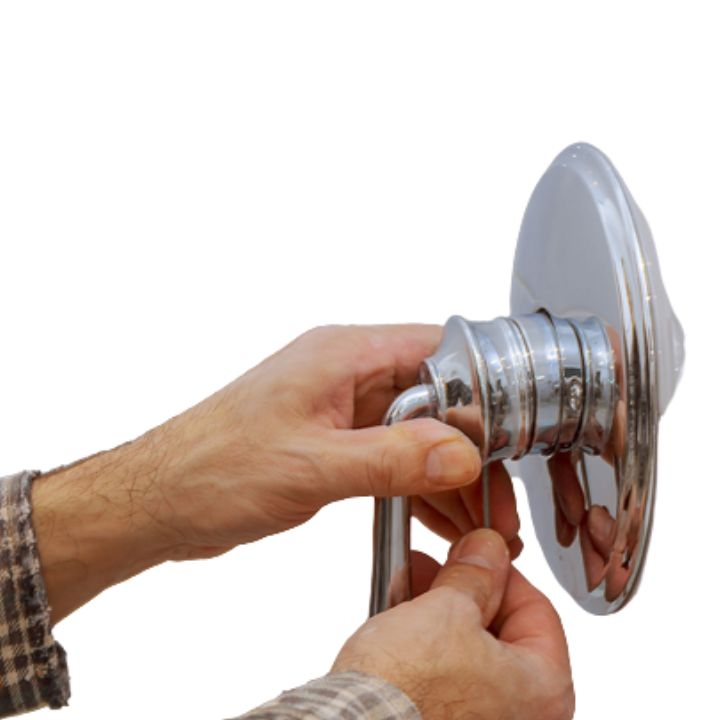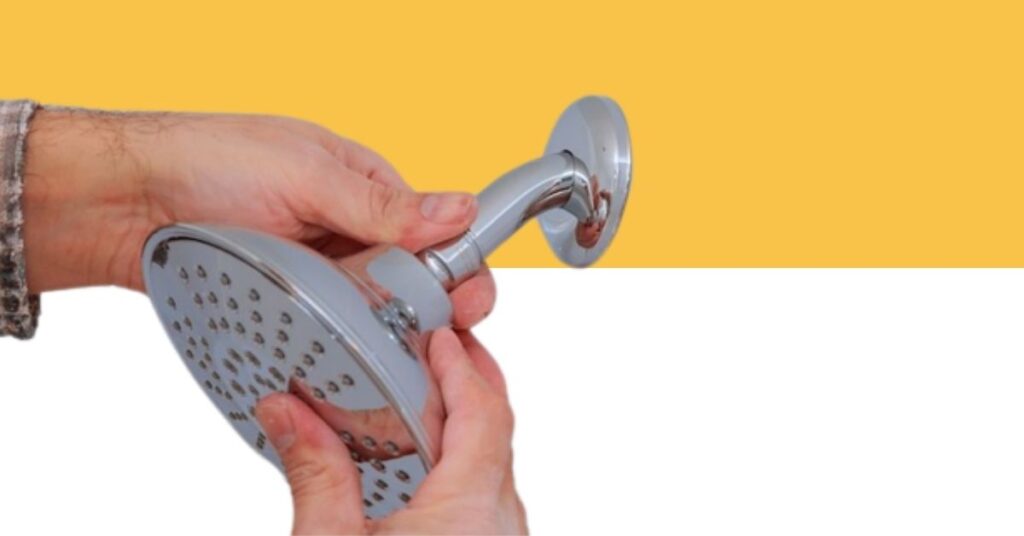If you’ve ever had the frustrating experience of trying to take a shower, only to find that the water wouldn’t stop running, you know how frustrating it can be. You may have noticed the water coming out of the shower head and wondered what was going on. Don’t worry – this is a common issue, and there are several possible solutions you can try to get your shower running again.
In this blog post, we’ll discuss why your shower won’t stop running, as well as some simple tips to help you fix the problem.
Use links below for easy navigation
Identifying the problem
When faced with a shower that won’t stop running, the first step is to identify the root of the problem. There can be several potential causes for this frustrating issue, so it’s important to narrow down the possibilities.
One possible reason could be a faulty shower valve. The shower valve controls the flow of water, and if it’s not functioning properly, it could cause the water to continuously flow. Another common culprit is a worn-out or damaged cartridge. The cartridge is responsible for controlling the water temperature and pressure, so if it’s worn out, it may result in a shower that won’t stop running.
A leaky shower head could also be to blame. Over time, the sealant or the rubber gasket in the shower head can deteriorate, causing water to continuously flow out. Additionally, a malfunctioning diverter valve can lead to a shower that won’t stop running. The diverter valve directs the water flow from the faucet to the showerhead, so if it’s not working properly, water may keep flowing even when the shower is turned off.
By identifying these potential causes, you can have a better understanding of what may be going wrong with your shower. This knowledge will help guide your troubleshooting efforts and allow you to find the most appropriate solution to fix the issue.
Common causes of a Shower that won’t stop running

A shower that won’t stop running can be incredibly frustrating, but understanding the common causes can help you find a solution. One common culprit is a faulty shower valve. This valve controls the flow of water, and if it’s not working properly, the water may keep running. Another possible cause is a worn-out or damaged cartridge. The cartridge regulates water temperature and pressure, so if it’s worn out, it can result in a continuous water flow.
Leaky shower heads can also be the reason for this issue. The shower head’s sealant or rubber gasket can wear out, leading to constant water flow. A faulty diverter valve can also cause a never-ending shower by failing to redirect water from the faucet to the showerhead when turned off.
Don’t worry, we’ll dive into the DIY fixes in the next section, so you can regain control of your shower and stop the endless flow of water.
DIY fix for a shower that won’t stop running

Now that you have a better understanding of why your shower won’t stop running, let’s talk about some DIY fixes that you can try before calling in a professional plumber. Keep in mind that these solutions may not work for every situation, so it’s important to assess the problem and use your best judgment.
One potential DIY fix is to check and tighten any loose connections. Start by turning off the water supply to the shower and then inspect the shower valve, cartridge, and diverter valve for any loose or damaged parts. If you notice anything out of place, use a wrench or pliers to tighten or replace the necessary components.
Another option is to clean the shower head. Over time, mineral deposits can build up and cause a blockage, resulting in water continuously flowing. Remove the shower head and soak it in a mixture of vinegar and water to dissolve the deposits. Use a brush to scrub away any remaining residue and then reattach the shower head.
If these DIY fixes don’t solve the problem, it may be time to call in a professional plumber. They will have the expertise and tools necessary to diagnose and fix any underlying issues with your shower.
Remember, prevention is key to avoiding a continuously running shower in the future. Regularly inspect and maintain your shower components, and address any issues promptly to prevent further damage. By taking these simple steps, you can enjoy a fully functional shower without any frustrating water flow problems.
| Reasons | DIY FIXES |
|---|---|
| Loose faucet | Tightening the faucet |
| Faulty cartridge | Replacing the cartridge |
| Faulty valve | Replacing the valve |
| Shower leak | Cleaning the shower |
When to call a professional plumber
While there are many DIY fixes you can try to solve a shower that won’t stop running, there may come a time when it’s best to call in a professional plumber. Here are a few signs that indicate it’s time to seek professional help:
Persistent problem
If you’ve tried various DIY fixes and the issue persists, it’s a clear indication that there’s a more complex problem at hand. A professional plumber will have the knowledge and expertise to diagnose the root cause of the issue and implement the necessary repairs.
Lack of plumbing knowledge
If you’re not familiar with plumbing systems or don’t feel confident in your abilities to fix the problem, it’s best to leave it to the professionals. Attempting complex repairs without the necessary knowledge and experience can lead to further damage and costly repairs down the line.
Time constraints
If you don’t have the time to invest in troubleshooting and fixing the problem yourself, calling a professional plumber is a convenient option. They can quickly assess the issue and provide an efficient solution, saving you time and effort.
Warranty Concerns
If your shower is still under warranty, attempting DIY repairs may void the warranty. It’s advisable to consult with a professional plumber who can provide the necessary repairs without jeopardizing your warranty coverage.
Remember, a continuously running shower can waste water and increase your utility bills. Calling a professional plumber can not only fix the issue but also help you save money in the long run by addressing the underlying problem.
Preventing a Shower from Continuously Running in the Future

To prevent your shower from continuously running in the future, there are a few simple steps you can take. First and foremost, regular maintenance is key. Make it a habit to inspect your shower components periodically to identify any potential issues before they become major problems. Check for leaks, loose connections, and signs of wear and tear. By addressing these minor issues early on, you can prevent them from turning into bigger, more expensive repairs.
Another important preventative measure is to avoid using excessive force when operating your shower valves and handles. Be gentle and avoid over-tightening or forcing them into position. This can help prolong the lifespan of your shower components and reduce the risk of damage that could lead to a continuously running shower.
Additionally, consider investing in high-quality shower fixtures and valves. Opt for durable materials and reputable brands known for their reliability. While this may require a larger upfront investment, it can save you money in the long run by preventing frequent repairs and replacements.
Lastly, if you notice any changes in your water pressure or temperature, address them promptly. Fluctuations in water pressure or temperature can put a strain on your shower valves and cartridges, leading to potential issues with a continuously running shower.
By following these preventive measures and staying proactive in your shower maintenance, you can keep your shower running smoothly and avoid the frustration of dealing with a continuously running shower in the future.
Common Myths about Leaky Showers
Certainly, here are common myths about leaky showers based on the content outline:
Myth: A Dripping Faucet Is Harmless:
Fact: A dripping faucet can waste gallons of water over time and lead to increased water bills.
Myth: All Leaks Are Easy to Spot:
Fact: Some leaks occur within walls or ceilings, making them hard to detect without professional help.
Myth: DIY Fixes Always Work:
Fact: While some DIY fixes may work for minor leaks, complex issues often require a professional plumber’s expertise.
Myth: Leaky Showers Don’t Impact the Environment:
Fact: Persistent leaks contribute to water waste, which strains local water resources and ecosystems.
Myth: Replacing Fixtures Is the Only Solution:
Fact: In some cases, simple repairs may solve the problem without the need for fixture replacement.
Myth: Leaks Are Always Visible:
Fact: Some leaks are concealed and may cause structural damage before becoming apparent.
Myth: Leaky Showers Can’t Be Prevented:
Fact: Regular maintenance, inspections, and prompt repairs can prevent most shower leaks.
Conclusion
In the pursuit of a blissful and functional bathroom experience, dealing with a shower that won’t stop running can be a relentless annoyance. The persistent sound of water can disturb your peace, but more importantly, it can lead to water wastage and increased utility bills. We’ve embarked on a journey through the intricacies of this predicament, from identifying common causes to solutions that bring respite.
To wrap it all up, remember that addressing this issue promptly is key. A running shower may be caused by a variety of factors, including a faulty faucet, leaking showerhead, stuck diverter valve, hot water temperature regulator, water pressure problems, blockages, plumbing leaks, or even electrical issues if you have an electric shower. Knowing how to diagnose and tackle these issues can save you both time and money.


